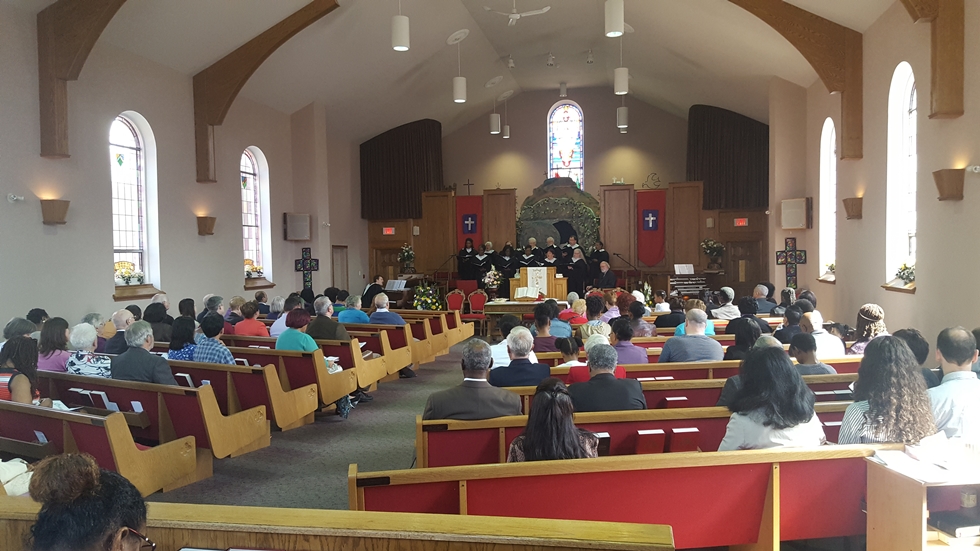Confronted By The Word Of God
“So Obadiah went to meet Ahab and told him, and Ahab went to meet Elijah, he said to him, “Is that you, you troubler of Israel?” “I have not made trouble for Israel,” Elijah replied. “But you and your father’s family have. You have abandoned the Lord’s commands and have followed the Baals. Now summon the people from all over Israel to meet me on Mt. Carmel. And bring the four hundred and fifty prophets of Baal and the four hundred prophets of Asherah, who eat at Jezebel’s table.” So Ahab sent word throughout all Israel and assembled the prophets on Mt. Carmel. Elijah went before the people and said, “How long will you waver between two opinions? If the Lord is God, follow Him; but if Ball is God, follow him.” But the people said nothing.”
1 Kings 18:16-21
M. B. Van’t Veer in My God Is Yahweh, writes regarding Elijah that he is, as a Prophet of God, the embodiment of the Word of God to the people of Israel during the years of his ministry. The New Testament book of Hebrews makes this truth clear, as well as applying it when it says, “In the past God spoke to our forefathers through the prophets at many times and in various ways, but in these last days He has spoken to us in His Son, whom He appointed heir of all things, and through whom He made the universe.” (Hebrews 1:1-2) Elijah spoke to Ahab, and to all of Israel, not with his own authority, but with the authority that came from the Word of the Lord to God’s covenant people. As one with such authority Elijah could then issue commands which were binding upon the King.
At the heart of the confrontation recorded for us in 1 Kings 18:16-21 is a dispute over who is causing trouble for the people of Israel. They are suffering through a prolonged period of drought which came about at the word of Elijah. Ahab accuses Elijah of being the troubler of Israel as a consequence. If Elijah had just kept to himself, minding his own business then this trouble would not have come. Isn’t this always the charge brought against those who prophetically proclaim God’s Word today? If they would just keep to themselves, we think, then we would not have any trouble. The reality is much more convicting.
Elijah rejects Ahab’s charge. The reality is that the trouble that Israel is facing is the consequence of the rebellious unbelief of the King and His family. Van’t Veer puts it this way. “Ahab’s confession confronts us with another side of his sin, for he makes it clear that he refuses to discharge his duties as theocratic King. The first thing this office involves is that the King is Israel’s “Shepherd,” who always leads “the Lord’s flock” in accordance with the Word of the One to whom the sheep belong. This is just what Ahab refused to do.
He refused to examine the great question raised in such a powerful way by Elijah’s appearance, the question illuminated by the light of Scripture. He failed to help the people with this question, whereas he should have led the way in seeking an answer. He never wanted to formulate the problem in its proper terms.” (Van’t Veer, My God Is Yahweh, Paideia Press, St. Catherines, ON, 1980, p. 181)
What Van’t Veer is pointing us to is Ahab’s calling as King which gave him the responsibility to lead God’s people in obedience to His Word. The people of God were called to be a people living in obedience to the Word of God. This is our calling today. We are to live by faith, obediently following the Living Word wherever He leads us. Elijah confronted Ahab on his refusal to obey God’s covenant call upon his life, to scripturally examine the Word that the prophets delivered so that he and God’s people could walk obediently with Him. As I reflect upon this calling I see the King being called to function as a Pastor, or Shepherd for God’s people. This meant that he was called to examine the Scriptures in order to determine God’s Word for His people. Ahab was to be a man of the Word, just as all true leaders in the Church today must be people of the Word. He must be a leader who applies the Word of God to the life of the Nation.
Israel’s only hope, and for that matter ours as well, could only be found in an obedient walking with God in His covenant. For us today this calls us to obediently walk in faith in the Lord Jesus Christ. God’s Word leads us to this faith by asking us a question, “How long will you waver between two opinions?” We so often find ourselves in this place. Who do we worship? Who is our God? These are the questions we must ask. To answer them biblically holds the key to living eternally in the blessed life God has created us for. Who do you worship?
